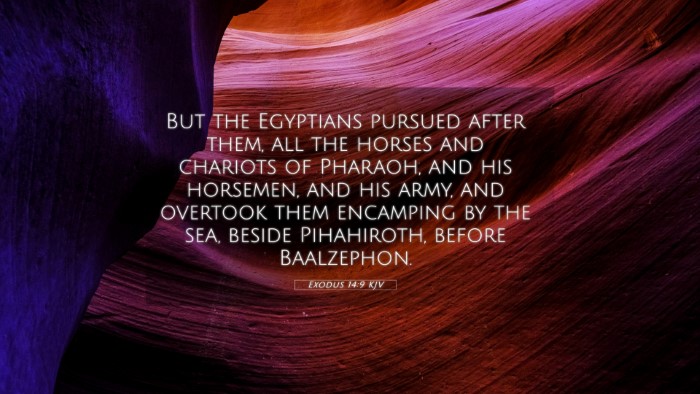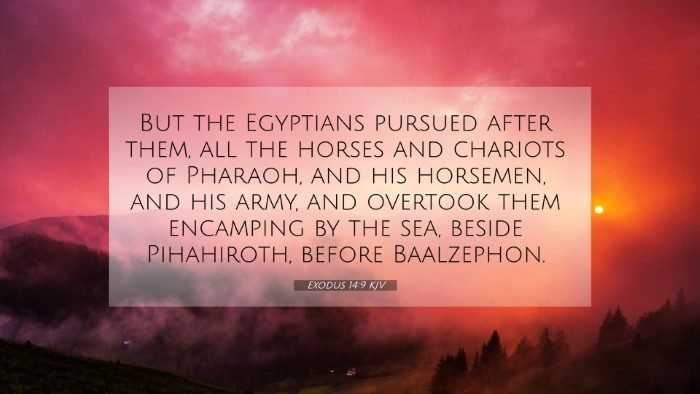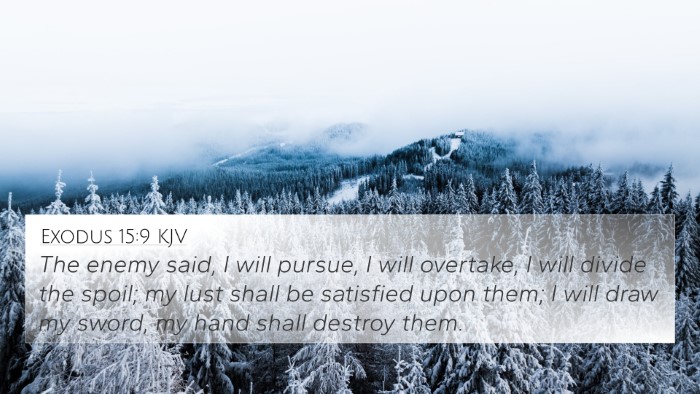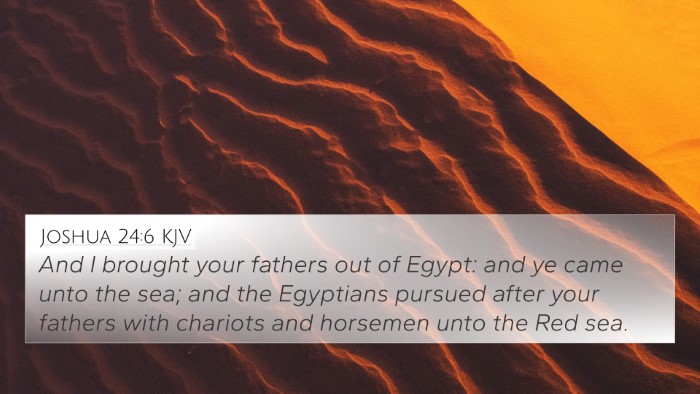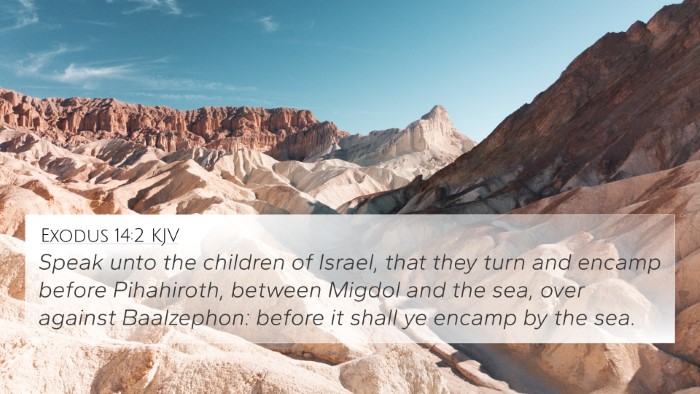Understanding Exodus 14:9
Exodus 14:9 states, “But the Egyptians pursued after them, all the horses and chariots of Pharaoh, and his horsemen, and his army, and overtook them encamping by the sea, beside Pi-hahiroth, before Baal-zephon.” This verse illustrates a pivotal moment in the narrative of the Exodus, where the Israelites find themselves trapped between the advancing Egyptian army and the Red Sea.
Contextual Analysis: The pursuit of the Israelites by the Egyptians represents the conflict between God's chosen people and their oppressors. This moment sets the stage for God's dramatic intervention and the demonstration of His power through the parting of the Red Sea.
This event raises important theological themes of deliverance, faith, and the sovereignty of God in the face of seemingly insurmountable odds. Commentators such as Matthew Henry and Albert Barnes emphasize that this pursuit not only displays Pharaoh's determination but also serves to demonstrate that God’s plan for Israel will ultimately prevail.
Key Themes and Insights
- God's Deliverance: The plight of the Israelites symbolizes the struggles faced by believers, and God's promise of deliverance even when the situation seems dire.
- Faith Under Pressure: The Israelites felt trapped, invoking a theme of faith amidst circumstances that provoke fear and doubt.
- Divine Sovereignty: God's ability to manipulate natural events (e.g., parting the sea) highlights His sovereignty over all creation.
Cross-References
This verse connects with several other scripture passages that enrich its meaning:
- Exodus 14:13-14: God reassures Moses that He will fight for the Israelites.
- Exodus 15:1-3: The Song of Moses celebrates God's deliverance from Egypt.
- Psalms 106:9-12: A reflection on God's power in overcoming the Egyptians.
- Isaiah 43:16-19: God's promise of making a way through the waters.
- Hebrews 11:29: The faith of Israel in crossing the Red Sea as a pivotal act of faith.
- Romans 8:31: If God is for us, who can be against us, echoing the protection God provides in crises.
- 1 Corinthians 10:1-2: The Israelites' crossing is likened to baptism, showing their spiritual journey.
Interpreting Through Cross-References
Using cross-references helps to deepen our understanding of Exodus 14:9. For instance, by examining Exodus 14:13-14, we see God’s assurance to Moses, contrasting the ensuing panic of the Israelites. This textual dialogue serves to illustrate the human tendency toward fear contrasted against divine promises of protection.
Comparative Analysis of the Narrative
The narrative parallels with other Biblical events where God delivers His people from bondage, such as:
- Jesus calming the storm (Mark 4:39): Echoes the divine control over nature.
- Paul's shipwreck (Acts 27): God's promise of safety even in perilous situations.
This inter-Biblical dialogue reveals consistent themes of trust in God's plan, underscoring the importance believers place on faith in troubling times. As these verses resonate across different contexts and characters, they collectively build a robust framework for understanding God’s nature.
Conclusion
Exodus 14:9 stands as a testament to the struggles faced by God’s people and His unwavering commitment to their deliverance. The intertwined nature of this verse with others throughout scripture not only enhances its meaning but also encourages believers today to trust in God’s sovereignty and power in their own lives.

